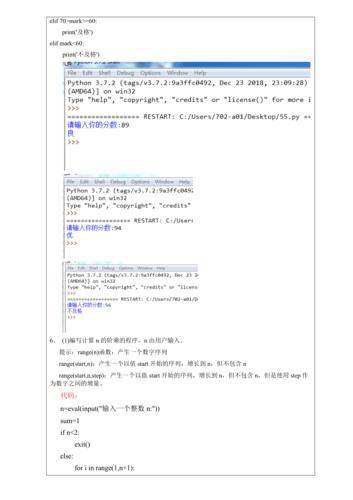```html
Software Programming Report
Software programming is a vast field encompassing various languages, methodologies, and tools. In this report, we will delve into some key aspects of software programming, including language selection, development methodologies, and best practices.
Choosing the right programming language is crucial for the success of any software project. Here are some popular programming languages and their suitable applications:
- Python: Python is widely used for web development, data analysis, artificial intelligence, and scientific computing. Its simplicity and readability make it an excellent choice for beginners.
- Java: Java is a versatile language known for its platform independence, making it ideal for building enterpriselevel applications, Android mobile apps, and largescale systems.
- JavaScript: JavaScript is essential for web development, enabling dynamic and interactive user interfaces. It is also used for serverside development with Node.js.
- C : C is preferred for performancecritical applications, system software, game development, and embedded systems due to its high efficiency and control over hardware.
- Swift: Swift is the primary language for developing iOS and macOS applications, known for its safety features, performance, and modern syntax.
Effective development methodologies ensure the timely delivery of highquality software. Here are some popular methodologies:
- Agile: Agile methodologies, such as Scrum and Kanban, promote iterative development, collaboration, and adaptability to changing requirements. They emphasize delivering working software frequently and gathering feedback from stakeholders.
- Waterfall: The waterfall model follows a sequential approach, with distinct phases for requirements gathering, design, implementation, testing, and maintenance. While less flexible than Agile, it is suitable for projects with welldefined requirements and stable technologies.
- DevOps: DevOps integrates development and operations teams to automate and streamline the software delivery process. It emphasizes continuous integration, continuous delivery, and infrastructure as code to achieve faster releases and improved reliability.
To ensure the development of robust and maintainable software, it's essential to follow best practices:
- Code Quality: Write clean, modular, and welldocumented code following coding standards and naming conventions. Use version control systems like Git to track changes and collaborate effectively.
- Testing: Implement automated testing, including unit tests, integration tests, and endtoend tests, to detect bugs early and ensure software reliability. Employ testdriven development (TDD) or behaviordriven development (BDD) approaches to drive development through tests.
- Security: Prioritize security throughout the development lifecycle by following secure coding practices, conducting regular security audits, and implementing security features such as authentication, authorization, and encryption.
- Performance Optimization: Profile your code to identify bottlenecks and optimize critical sections for improved performance. Utilize caching, asynchronous programming, and scalability strategies to handle increased workloads efficiently.
- Continuous Learning: Stay updated with the latest technologies, tools, and best practices through continuous learning, attending conferences, participating in online communities, and engaging in peer code reviews.

By adhering to these principles and practices, software developers can create highquality, reliable, and scalable software solutions that meet the needs of users and businesses alike.
